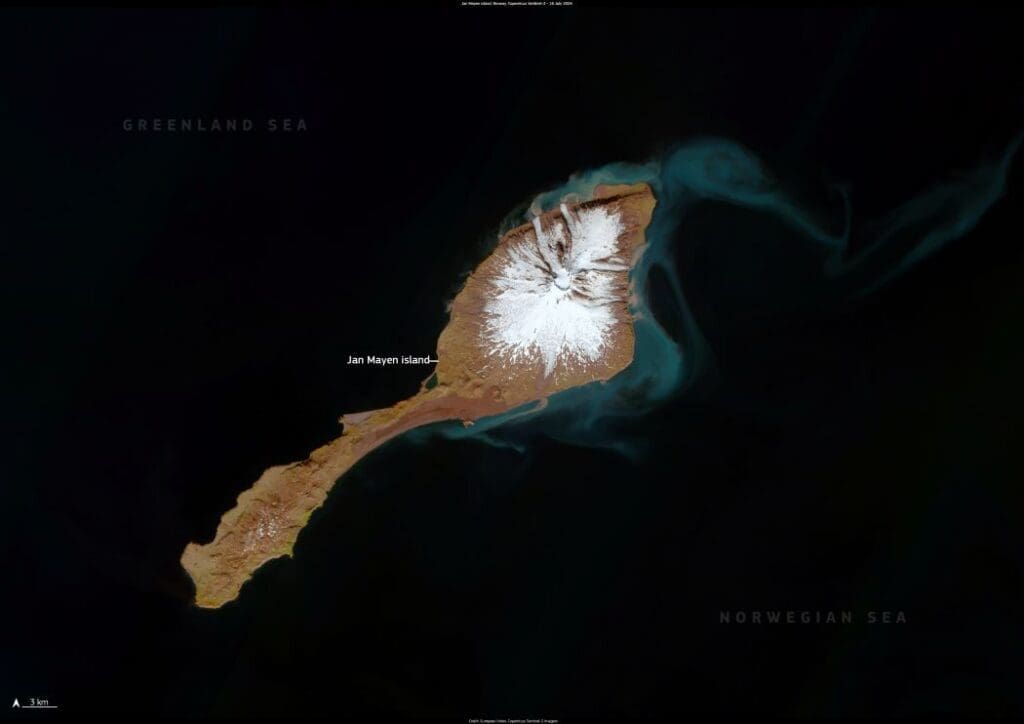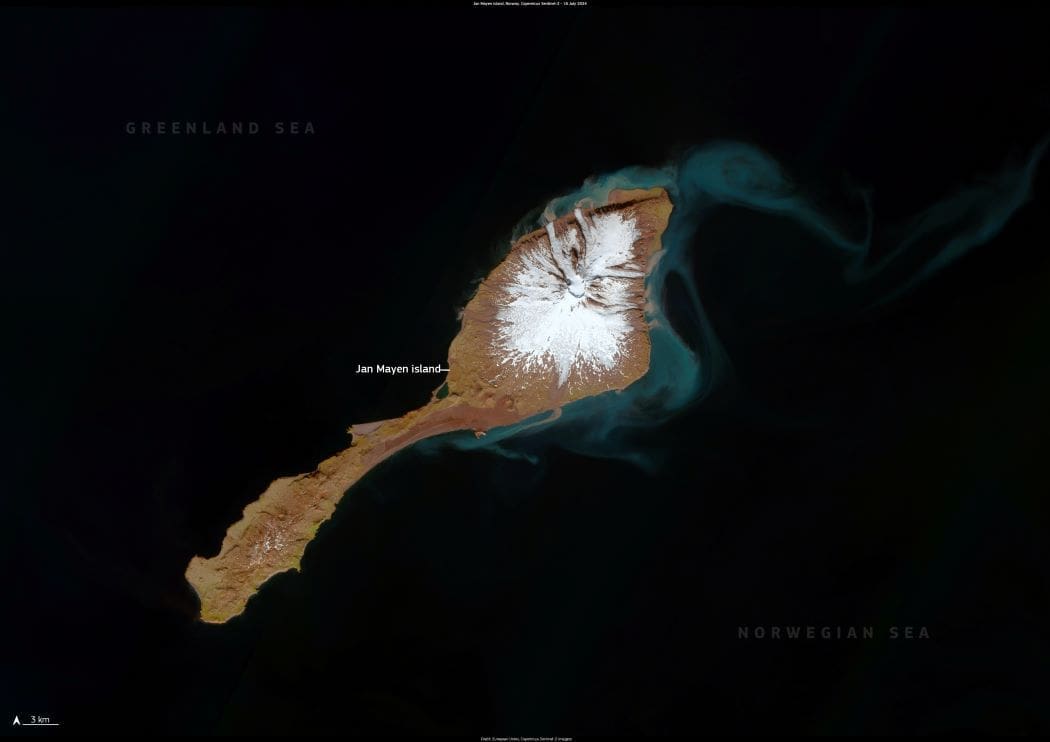Jan Mayen, a volcanic island in the North Atlantic, is one of Norway’s most isolated territories. Situated about 600 km northeast of Iceland and 950 km west of mainland Norway, the island spans 373 km2 and is dominated by Beerenberg, the world’s northernmost active volcano above sea level. Towering at 2,277 meters, Beerenberg is often shrouded in ice and clouds, making it a striking yet formidable landmark.
The island’s Arctic environment is defined by extreme conditions — cold temperatures, relentless winds, and a landscape largely devoid of vegetation. Despite these challenges, Jan Mayen is an important site for scientific research. The island hosts meteorological and climate-monitoring stations, as well as one of the Ground Sensor Stations of the EU Space Programme, contributing to global efforts in environmental observation and climate science.

Jan Mayen is visible in this Copernicus Sentinel-2 image, acquired on 16 July 2024.
Sentinel satellites are crucial for monitoring Arctic regions, providing data that helps researchers and policymakers track climate change, assess glacial movements, and develop strategies to protect vulnerable ecosystems. These observations are particularly important as rising global temperatures accelerate changes in the Arctic, affecting ice coverage, ocean currents, and local wildlife.
Featured image credit: European Union, Copernicus Sentinel-2 imagery




